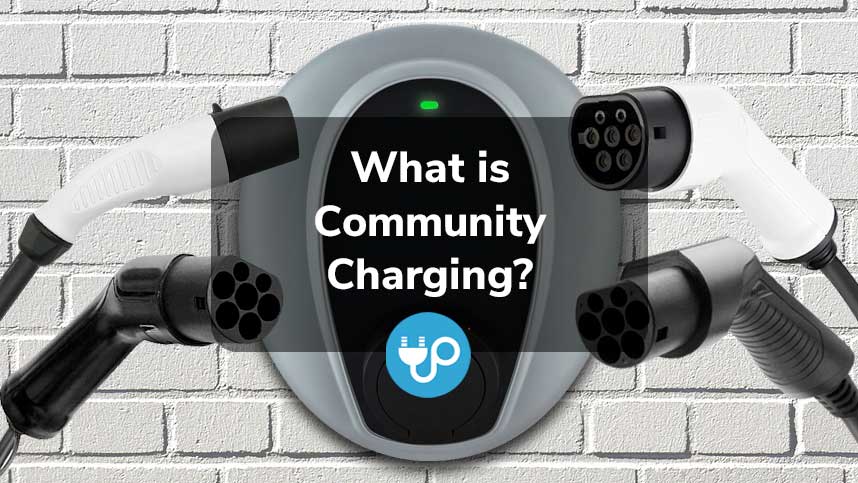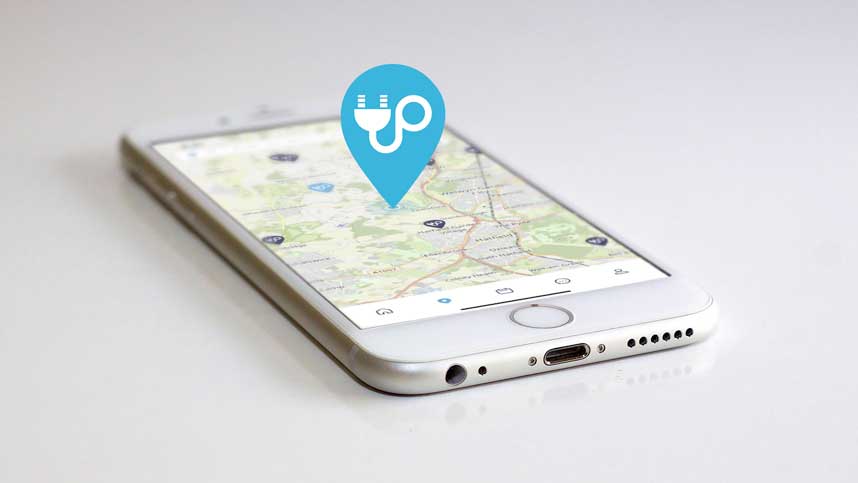
What is Community Charging?
As the UK swiftly heads towards the 2030 ban on the sale of petrol and diesel vehicles, the need for appropriate electric vehicle charging infrastructure becomes more critical.
The fact is, the current rate of installation of public charging points is falling behind and not keeping pace with the sale of EVs.
According to SMMT (Society of Manufacturers and Traders), just “one new charger is currently being installed for every 52 new electric vehicles registered”.
On average, 500 new public chargers need to be installed per day to meet current demands, yet the actual figure is closer to just 800 chargers per month.
This is only going to worsen as the UK’s 2030 deadline looms.
Vehicles that can be plugged in now account for around one in every six new car registrations in the UK.
When considering that around 40% of UK households are unable to install a chargepoint due to a lack of privately owned parking or a driveway, the UK is headed for problems if 15 million motorists have nowhere to fully charge their vehicles.
In short, the electric charging infrastructure promises made by our government will not be met.
So what’s the answer?
Chapters
Community Charging
Community charging is the sharing of privately owned electric vehicle charging points between individuals in the local area.
Instead of being solely reliant on public charging infrastructure, community charging promotes collaboration between private individuals who own an off-street charger to allow others to use it in return for an agreed fee.
This fee may be charged at an hourly rate or per kilowatt hour used.
Prime examples of off-street privately owned electric vehicle charging points includes:
- Residential charge points
- Workplace charge points
When considering the number of privately owned off-street chargers has already surpassed 300,000 and growing, community charging and charger sharing could easily fill the void in the public charging infrastructure, which is trailing way behind with just a paltry 30,000 currently said to be in existence.
Put simply, if the UK is to realistically meet its 2030 deadline of enforcing motorists to go electric, then charger sharing is the answer, with community charging being one of the key components of this concept.
Benefits of Community Charging
Community charging has a considerable number of benefits to both charge-point owners and motorists.
Here’s the top benefits that many of those new to the idea may not be aware of:
Income
Charger sharing means making an income from a charger that would otherwise sit idle and disused for 6 days of the week.
With most EV owners only needing to charge their vehicle’s on average once a week, having a local resident or motorist from out of town use your charger for a few hours to top up, or fully charge overnight creates very little inconvenience.
And the financial benefits of renting your charging out are worth it, especially considering the soaring cost of energy bills in recent times.
Any additional household income to UK homeowners is not to be sniffed at.
Affordable
Home electricity tariffs are generally far cheaper than public charging rates.
Therefore, by charging your electric vehicle using a shared community charger, you’re far more likely to pay less per kilowatt hour.
Bookable
By using community charging via charger sharing apps like Joosup, you can choose where and when you want to charge your electric vehicle.
This is super-convenient and gives motorists far greater assurances that a charger is ready and waiting for them at a time to suit.
Recoup Costs
The cost of having your own electric vehicle charger installed is easily north of £1000.00 + VAT nowadays.
Whilst the running costs of EVs are considerably less than cars with internal combustion engines requiring diesel or petrol, this initial investment is still a sizable outlay.
By sharing your charger in the community, you can recoup the cost of the charger installation far quicker than just sticking to personal use only.
Increase EV Uptake
If motorists considering purchasing an EV knew they had more places to charge their vehicle, confidence in making the switch to electric would increase exponentially.
This means cleaner air, quieter streets, cleaner towns and villages, and more EVs on our roads.
Eliminates Range Anxiety
The term “range anxiety” has been commonplace in the EV sector for many years now.
Essentially, it refers to a driver’s concerns that they may run out of battery during a long journey if they fail to find anywhere suitable to charge their vehicle.
Whilst the likelihood of this is gradually diminishing with EV ranges increasing as battery technology improves, there’s still many motorosist who are unconvinced by the lack of public charging options around the UK.
By charger sharing via community charging, you increase the availability of electric vehicle charging points around the country and eliminate the remote yet small possibility of EV drivers breaking down with a flat battery.
Freedom to Travel
It’s a simple fact that the more places there are to charge an electric vehicle, the more likely we are going to continue to travel around further afield.
The majority of the UK’s motorists only travel a short distance each day of the week.
But for those occasional long journeys, where you could travel into more rural or less developed areas, having a community charger to rent could be a life saver.
Safety & Security
Parking and charging at a private residence or on a driveway for any extended period of time is far safer than using a public charger.
The chances of theft, vandalism or damage to your vehicle is greatly reduced.
This means you can park your vehicle, plug it in to charge and leave for extended periods with far greater confidence.
Extended Battery Life
Many existing and would-be EV owners are unaware that it’s not actually a good idea to frequently use public rapid chargers.
These super fast charging stations are quick and convenient, but they harm battery life!
Using a direct current (DC), rapid chargers blast batteries with a high wattage current so they charge faster.
During this process, batteries can get extremely hot, leading to potential cell damage.
If that happens, the capacity of the battery becomes diminished and thus, the range of your vehicle reduces.
By using community charging at private homes and workplaces connected to a 7kWh charger, the slower speed of the charge is far kinder to batteries, meaning your EV will retain its range for far longer.
How to Start Community Charging
If you already own an EV charger at your home or workplace, then charger sharing in your community is very straightforward.
There are a number of apps available on the market to start charger sharing, one of which is Joosup.
Apps such as these are free to download and install.
Once installed, you quickly create an account, set up your profile and then add the charger you wish to share along with the hourly rate you wish to charge.
Then just sit back and watch the bookings come in.
Not only are you creating greater opportunities to make a residual income, you’re also helping others to make the switch to EV and preserving our planet’s environment.
What’s not to like?
Conclusion
The adoption of the concept of community charging and charger sharing is growing rapidly, and it’s easy to see why.
By collaborating with like-minded individuals within the community, it means we can switch to an EV without the concerns of whether the public infrastructure will be ready or not.
Blog Archive
- What is a CT Clamp and Does My Charger Need One?
- Is Using an EV Granny Charger Safe?
- Charge Rage: Is It Really a Thing?
- Vehicle to Load (V2L): What It Is & How It Works
- 16 Top Charge Point Operators in the UK
- 8 Types of EV Battery Explained
- Where Can I Charge My Electric Car?
- Electric Car Maintenance and Servicing Guide
- How Often Should I Charge My Electric Car?
- How to Check EV Battery Health
- Do Electric Cars Pay Road Tax?
- October 2024 Budget: Key EV News
- EV vs ICE – Which is Best?
- Should I Charge My EV to 80 or 90 or 100%?
- UK Government Announces Hybrid Sales Allowed Until 2035
- BEV vs PHEV – What’s the Difference?
- Definitely Not A Guru (Jim Starling) Reviews Joosup
- How Long Do Electric Car Batteries Last?
- 25 New Electric Car Brands on UK Roads
- General Election 2024: Major Party Net Zero Policies Compared


